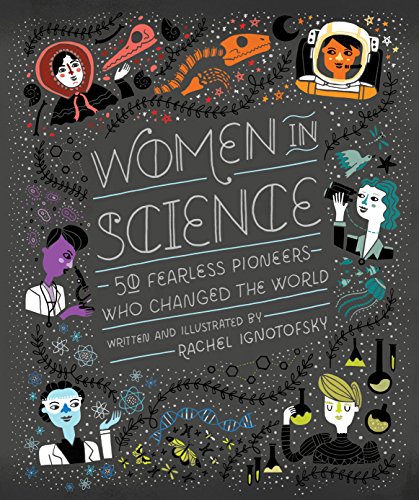Hope Jahren
Author of Lab Girl
Book Recommendations:
Recommended by Hope Jahren
“In his reader-friendly style, Montgomery describes the environmental crossroads at which we stand, and shows us not only the devastation, but the potential solution, that exists right beneath our feet.” (from Amazon)
A MacArthur Fellow’s impassioned call to make agriculture sustainable by ditching the plow, covering the soil, and diversifying crop rotations. The problem of agriculture is as old as civilization. Throughout history, great societies that abused their land withered into poverty or disappeared entirely. Now we risk repeating this ancient story on a global scale due to ongoing soil degradation, a changing climate, and a rising population. But there is reason for hope. David R. Montgomery introduces us to farmers around the world at the heart of a brewing soil health revolution that could bring humanity’s ailing soil back to life remarkably fast. Growing a Revolution draws on visits to farms in the industrialized world and developing world to show that a new combination of farming practices can deliver innovative, cost-effective solutions to problems farmers face today. Cutting through standard debates about conventional and organic farming, Montgomery explores why practices based on the principles of conservation agriculture help restore soil health and fertility. Farmers he visited found it both possible and profitable to stop plowing up the soil and blanketing fields with chemicals. Montgomery finds that the combination of no-till planting, cover crops, and diverse crop rotations provides the essential recipe to rebuild soil organic matter. Farmers using these unconventional practices cultivate beneficial soil life, smother weeds, and suppress pests while relying on far less, if any, fertilizer and pesticides. These practices are good for farmers and the environment. Using less fossil fuel and agrochemicals while maintaining crop yields helps farmers with their bottom line. Regenerative practices also translate into farms that use less water, generate less pollution, lower carbon emissions―and stash an impressive amount of carbon underground. Combining ancient wisdom with modern science, Growing a Revolution lays out a solid case for an inspiring vision where agriculture becomes the solution to environmental problems, helping feed us all, cool the planet, and restore life to the land.
Recommended by Hope Jahren
“This charming encyclopedia includes a page of text and a fanciful drawing of the women scientists you’ve heard of—and plenty who you haven’t! The book has good coverage of the 1800s and early 1900s—a critical time when women’s expanding participation in science was changing the very structure of how knowledge is pursued. . . . Ignotofsky’s profiles of diverse female scientists is a great addition to the shelf of any student, of any age.” (from Amazon)
NEW YORK TIMES BESTSELLER • This “wittily illustrated [and] accessible volume” (The Wall Street Journal) highlights the contributions of fifty notable women to the fields of science, technology, engineering, and mathematics (STEM) from the ancient to the modern world. “The must-read, girl-power STEM book.”—InStyle It’s a scientific fact: Women rock! This fascinating, educational collection features 50 illustrated portraits of trailblazing women in STEM throughout history.Full of striking, singular art, Women in Science also contains infographics about relevant topics such as lab equipment, rates of women currently working in STEM fields, and an illustrated scientific glossary. The trailblazing women profiled include such pioneers as primatologist Jane Goodall and mathematician Katherine Johnson, who calculated the trajectory of the 1969 Apollo 11 mission to the moon. Women in Science celebrates the achievements of the intrepid women who have paved the way for the next generation of female engineers, biologists, mathematicians, doctors, astronauts, physicists, and more!
Recommended by Hope Jahren
“Oliver Sacks knew how much his readers would miss him, and he outlined these ten essays before he left us. Indeed, blessed are we who mourn. His was a voice that could untangle even the most formidable knots of medical mystery—the bewildering maladies of the brain—and roll them out into smooth ribbons of human story. I read these essays in one night, spellbound as he described petals, cameras, bombs—and, of course, neurons—so enraptured with details that only later did I realize how he had also explained the weightiness of time, memory, and learning itself. The River of Consciousness is the precious voice of Oliver Sacks come back to us, to do what all great seers do: lead us to places that we could never have found on our own.” (from Amazon)
From the best-selling author of Gratitude, On the Move, and Musicophilia, a collection of essays that displays Oliver Sacks's passionate engagement with the most compelling and seminal ideas of human endeavor: evolution, creativity, memory, time, consciousness, and experience. Oliver Sacks, a scientist and a storyteller, is beloved by readers for the extraordinary neurological case histories (Awakenings, An Anthropologist on Mars) in which he introduced and explored many now familiar disorders--autism, Tourette's syndrome, face blindness, savant syndrome. He was also a memoirist who wrote with honesty and humor about the remarkable and strange encounters and experiences that shaped him (Uncle Tungsten, On the Move, Gratitude). Sacks, an Oxford-educated polymath, had a deep familiarity not only with literature and medicine but with botany, animal anatomy, chemistry, the history of science, philosophy, and psychology. The River of Consciousness is one of two books Sacks was working on up to his death, and it reveals his ability to make unexpected connections, his sheer joy in knowledge, and his unceasing, timeless project to understand what makes us human.


